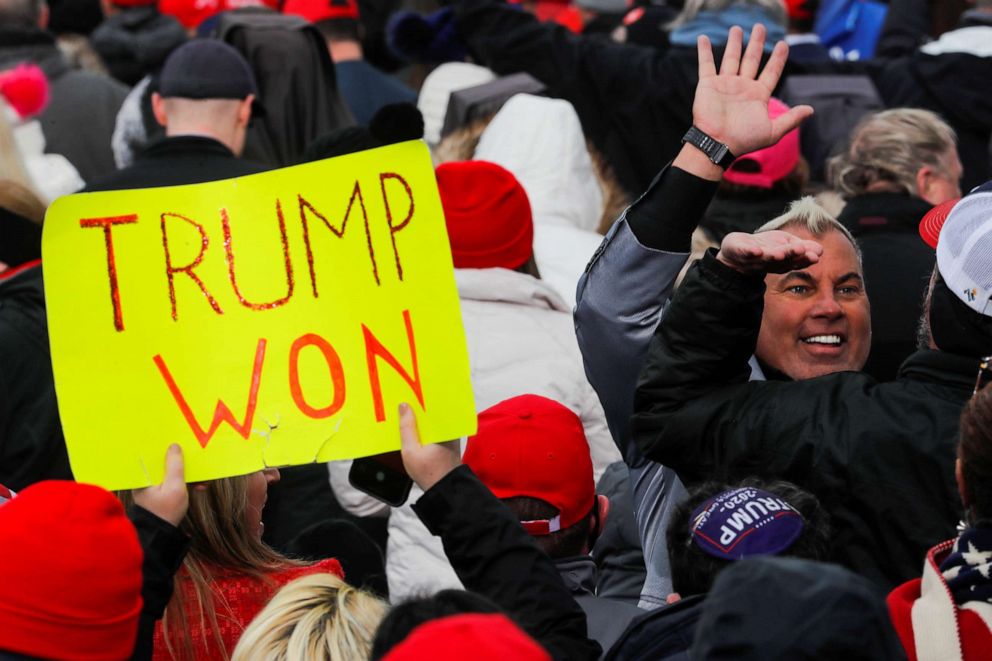What does it take to convict?: VIDEO
As Trump faces an unprecedented second impeachment trial, here's how the impeachment process works.
How the impeachment process works
Biden remembered those who were killed and called for unity going forward.
Former President Donald Trump's historic second impeachment trial ended with a 57-43 vote to acquit in the Senate. He faced a single charge of incitement of insurrection over his actions leading up to the Jan. 6 riot at the U.S. Capitol.
As Trump faces an unprecedented second impeachment trial, here's how the impeachment process works.
How the impeachment process works
Maryland Democratic Rep. Jamie Raskin will lead the House's prosecution, tapped by Speaker Nancy Pelosi to serve as the top impeachment manager. Raskin, a Harvard-educated, former constitutional law professor serving in his third term in the House, was the lead author of the impeachment article in the wake of the Jan. 6 insurrection at the U.S. Capitol.
Days earlier, on New Year's Eve, Raskin's son Thomas, who was following his father's footsteps at Harvard Law School, took his own life after battling depression. The Maryland lawmaker drew a standing ovation from his colleagues on the House floor as he thanked them for their "love and tenderness" over the loss of his son. He then proceeded with his remarks on the objections over accepting the election results. Less than an hour later, the Capitol was under siege and Raskin was sheltering under a desk with one of his two daughters and his son-in-law.
Who is Jamie Raskin?
-ABC News' John Parkinson
Trump will be the first president to undergo an impeachment trial after leaving office, but opponents of the impeachment say a trial may be unconstitutional.
2nd Impeachment Trial: What this could mean for Trump
The public should expect to see four attorneys on the Trump team during the trial: David Schoen, Bruce Castor, Michael van der Veen and Julieanne Bateman.
The newly appointed legal team submitted its first legal brief on Feb. 2, arguing the trial is unconstitutional because Trump is no longer in office. The trial's legality has been called into question since the beginning but the Senate voted to proceed.
The brief also argues that Trump's use of social media and comments made on Jan. 6 are protected by the First Amendment. There is a possibility that Trump's defense may skirt into claims of election fraud, despite Trump and his allies losing dozens of court cases on the issue and the 2020 election results being certified by Congress.

Trump's lawyers filed another brief on Feb. 8, further elaborating their argument against the trial's constitutionality and asking the Senate to dismiss the charges. House impeachment managers followed with a five-page response to Trump's legal team.
-ABC News' Katherine Faulders and Tia Humphries